A Seattleite Tells How Amazon ‘Swallowed’ His Town
Recent news about Amazon has focused on the abusive conditions that prevail in the company's headquarters in Seattle. A “more comprehensive indictment,” writes a lifelong resident of the city, would “describe its effect on” the city, “which used to be a great place to live."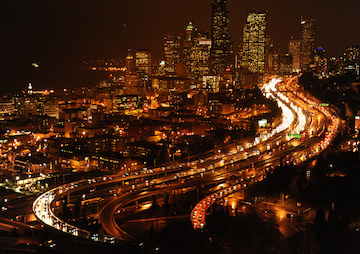 Downtown Seattle viewed from Pacific Tower, where Amazon kept offices before moving to the South Lake Union neighborhood. (Wonderlane / CC BY 2.0)
Downtown Seattle viewed from Pacific Tower, where Amazon kept offices before moving to the South Lake Union neighborhood. (Wonderlane / CC BY 2.0)
Recent news about Amazon has focused on the abusive conditions that prevail in the company’s headquarters in Seattle. A “more comprehensive indictment,” writes a lifelong resident of the city, would “describe its effect on” the city, “which used to be a great place to live” but is now degraded by the culture and economics the company generates.
Here are some choice excerpts from the piece, a long meditation by an author named “CML” and published at Gawker:
Seattle has always represented possibility and prosperity. In old Seattle thrived almost any kind of good life. The diversity of backgrounds, desires, and existences renewed itself through community and leisure. The regional character—a “weirdness” based on interest in what one did—was less of an affectation than in Austin, not so much a next-level normativity as in Portland. The abundant money granted time and choice more than it locked into lifestyles, and for this reason did not accumulate and stagnate among those with nothing else, as in New York or the other Washington. The wealth kept the weirdness weird and the weirdness kept the wealth in check. …
Boomtowns like [South Lake Union, the once virtually derelict area where Amazon built its Seattle campus] are an effort to keep tech employees inside a self-sustaining, non-intrusive bubble. This is little more than a libertarian myth. The bubble leaks and spreads blight in all directions. New condos blemish old neighborhoods more than they relieve pressure on their housing stock. Everything around South Lake Union has declined in culture and risen in price. To the east, Capitol Hill has endured a series of costly facelifts. Once our center of gay, musical, biker, bohemian, leftist, and anything-else culture, it now bears as little resemblance to its glory days as modern San Francisco does to the utopia of Hunter S. Thompson. To the west, Lower Queen Anne has aged into a boozy playground of brogrammers. To the south, Belltown offers a programmed imitation of “urban life,” with apartment towers and specialist groceries. A small part of Seattle has always aspired to be New York, and now it has gotten its wish. The frontier of condos pushes forward at the rate of a block a year. The blight’s growth is far faster. The “real Seattle” recedes at the same rate, just ahead of it: north of the Amazon Rainforest, Fremont and Wallingford await their spikes in rent, their hordes of vapid arrivistes. …
The more people in the new Seattle are defined by their jobs, the less they talk about them. Seattleites used to take great interest in what they did, and have time to pursue outside curiosities. Both are less true now, thanks to the “convenience” of software. Anyone who has availed himself of this convenience (for example, through writing) knows working with computers is tedious and antisocial. A friend described his development job as “trying to instruct a small child who sucks at learning,” while reporting: “I have made no friends at work.” These “professional relationships” call to mind the “Seattle Freeze,” a phenomenon where people here pretend to be friendly but form only the most superficial of social connections. The cause is obvious: Wikipedia hilariously deadpans, “The rapid growth of Amazon and its accompanying influx of mostly young, male technology workers may be making the problem worse.” They don’t have time to be interested. …
Even millennials hate Amazon less than we should. Many of us who do hate it leave. A decade ago, the college diaspora could always come home, and did. Now the exodus accelerates. Amazon’s churn catches all Seattle in its gyre. The wrong people move in, the right people move out. Andrew, my best friend, has gone to Los Angeles. I couldn’t argue compellingly for him to stay. Part of me didn’t even want to. My other creative friends have also scattered to the winds. Seattle is losing its voices who can speak up against Amazon. Those of us who remain too often mute ourselves.
This is mainly because Amazon employs us. If it doesn’t employ us, it employs people we know, some of whom we might even like. If our generation’s cardinal virtue is a mistrust of institutions, its worst vice is a hesitation to criticize our friends’ jobs, especially in writing or in public. This is a direct result of the economic and emotional insecurity promoted by organizations like Amazon. Four years ago, a friend tendered his resignation on a cocktail napkin. Today’s drones are more circumspect, and less free.
Continue reading here.
— Posted by Alexander Reed Kelly.
Your support matters…Independent journalism is under threat and overshadowed by heavily funded mainstream media.
You can help level the playing field. Become a member.
Your tax-deductible contribution keeps us digging beneath the headlines to give you thought-provoking, investigative reporting and analysis that unearths what's really happening- without compromise.
Give today to support our courageous, independent journalists.
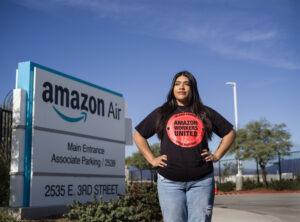
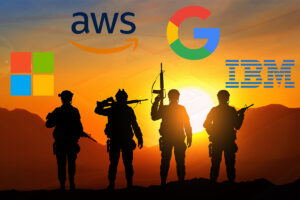

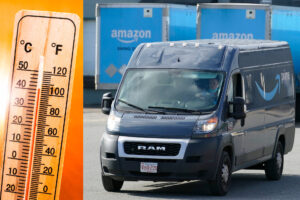

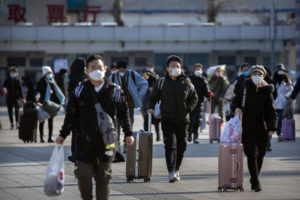
You need to be a supporter to comment.
There are currently no responses to this article.
Be the first to respond.